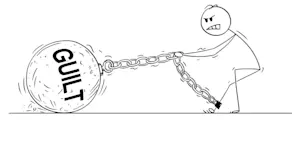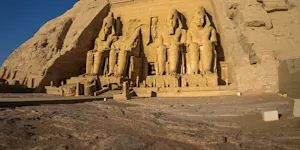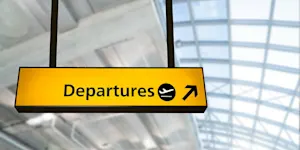What Makes This Word Tick
"Hurtle" is a dynamic word that conjures images of rapid and often chaotic movement. It implies a sense of urgency and a lack of control, perfect for describing things that rush, such as a car speeding down a highway or a rock tumbling downhill. It’s a word that almost leans forward, eager to take off!
If Hurtle Were a Person…
Hurtle would be that restless friend who never sits still, always moving at full velocity, ready for the next adventure. They thrive in chaos, charmingly unkempt, a whirlwind of energy who makes even the calmest days feel like a thrill ride.
How This Word Has Changed Over Time
Originally used to describe a collision, "hurtle" has evolved over the centuries. While its root still hints at a noisy, crashing impact, today it’s more often about speed and movement than mere collision. The word's journey reflects our ever-increasing pace of life.
Old Sayings and Proverbs That Use Hurtle
While "hurtle" might not feature in classic proverbs, its spirit certainly does. Sayings like "the less haste, the more speed" or "haste makes waste" echo the frantic energy that hurtling often entails, warning us of the pitfalls of moving too fast.
Surprising Facts About Hurtle
Here's a fun tidbit: "hurtle" is often mistaken for "hurdle." They sound similar, but while hurdling is about overcoming obstacles gracefully, hurtling is all about speed, risk, and sometimes glorious, chaotic failure!
Out and About With This Word
"Hurtle" might aptly describe a crowded commuter train barreling towards the city during rush hour, or the momentum of a passionate debate. It loves the fast lane, whether talking about transport, emotions, or progress.
Pop Culture Moments Where Hurtle Was Used
Imagine a superhero movie: the villain's escape vehicle hurtles through the city, with skyscrapers blurring in its wake. Or a comedy, where an unfortunate character is caught up in a wild chain of events, hurtling from one mishap to another – all part of the fun!
The Word in Literature
In literature, "hurtle" finds a home in thrillers and action novels, powering chase scenes, dramatic escapes, or even a writer's existential musings on the passage of time. It’s a word that belongs to the drama of plot twists and gravity-defying narratives.
Moments in History with Hurtle
The 1969 moon landing perfectly encapsulates "hurtle" – a mission speeding through space at phenomenal speed, teetering on the edge of both triumph and disaster. Another historical "hurtle" could be the stock market crashes, with economies spiraling uncontrollably.
This Word Around the World
In some cultures, the essence of "hurtle" might be expressed through colorful idioms or slang – from Spanish "a toda velocidad" to French "à toute allure," languages worldwide capture the uncontrollable momentum underlying "hurtle."
Where Does It Come From?
"Hurtle" has roots in Middle English "hurten," meaning to strike or collide. Its etymology paints a vivid picture of the noisy, forceful action the word still represents today – a linguistic legacy of speed and impact.
How People Misuse This Word
People often mix up "hurtle" with "hurdle," leading to charming imagery of runners not just overcoming obstacles but doing so at breakneck speeds, which isn’t quite accurate.
Words It’s Often Confused With
Hurdle: This is a barrier or obstacle in a race. Hurtle is more about rushing headlong, possibly into something unexpected.
Hustle: To work energetically or move around quickly. While hustle is about action, hurtle is often more about chaotic speed.
Hurt: As a verb, it means to cause pain; however, its phonetic resemblance to "hurtle" often causes mix-ups.
Additional Synonyms and Antonyms
Synonyms for "hurtle" include "plummet," "race," "dash," and "zoom." Its antonyms would be "crawl," "saunter," "plod," and "dawdle."
Want to Try It Out in a Sentence?
"The boulder broke free from the mountainside and began to hurtle toward the road below, spurred on by gravity and an inevitability that demanded awe and a tiny bit of terror."
















